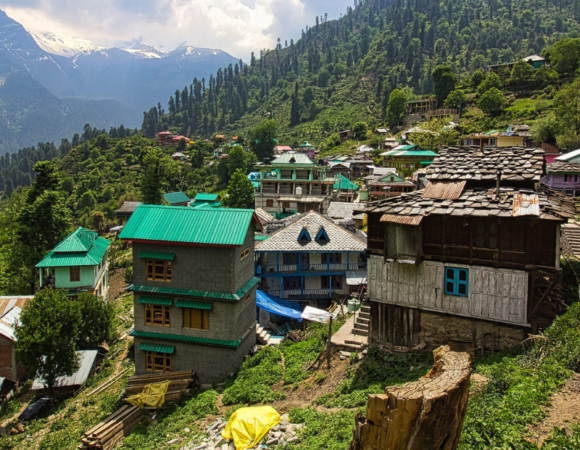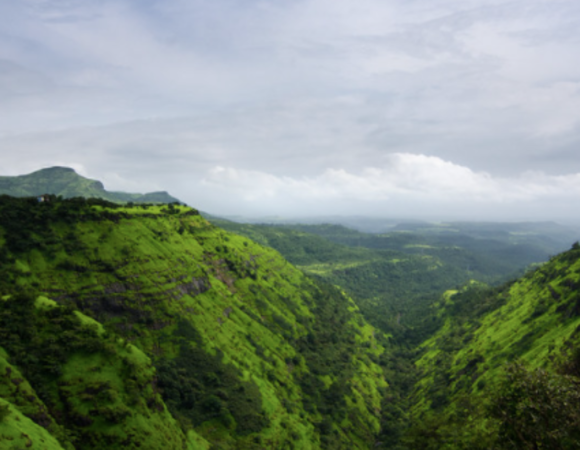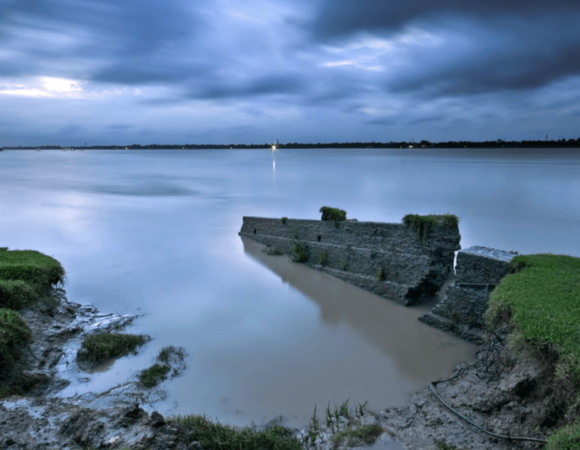How to Avoid Digestive Issues While Trekking
Discover proven strategies for how to avoid digestive issues while trekking through mountains and trails. Our comprehensive guide offers practical trekking nutrition tips to keep your gut happy and your adventure enjoyable without the interruption of stomach problems.
Table of Contents
ToggleEvery outdoor enthusiast needs to know how to avoid digestive issues while trekking. Nothing ruins a beautiful mountain view faster than stomach cramps or an urgent bathroom emergency on the trail. Many trekkers experience bloating, constipation, diarrhea, or indigestion during their adventures. These problems not only cause discomfort but can seriously compromise your safety and enjoyment. In this guide, you’ll discover practical trekking nutrition tips and a complete checklist to maintain gut health while exploring the great outdoors.
Why Digestive Problems Are Common During Treks
Before diving into solutions, it helps to understand why hiking digestion problems occur so frequently. Several factors contribute to digestive distress on the trail:

- Altered routines – Your body responds to changes in eating times, sleep patterns, and bathroom schedules.
- Dehydration – Many trekkers don’t drink enough water, leading to constipation and other issues.
- Unfamiliar foods – Trail meals and local cuisine may contain ingredients your gut isn’t accustomed to processing.
- Physical exertion – Intense activity diverts blood flow away from your digestive organs to your muscles.
- Altitude changes – Higher elevations can slow digestion and cause bloating or nausea.
- Stress and anxiety – The excitement and challenges of trekking affect your nervous system, which influences gut function.
Understanding these triggers helps you take more effective preventive measures for how to avoid digestive issues while trekking.
Before the Trek: Prepare Your Gut
Preparation is crucial when thinking about how to avoid digestive issues while trekking. Your gut health journey begins days before you hit the trail.
Eat Light & Clean

- Choose easily digestible foods like rice, oats, and steamed vegetables in the days leading up to your trek. These foods won’t stress your digestive system.
- Avoid junk food, spicy dishes, and oily meals at least 48 hours before departure. These foods can trigger inflammation in your digestive tract.
- Gradually increase your fiber intake in the weeks before your trek. This helps regulate bowel movements without sudden changes.
- Test any new healthy trekking food options at home before relying on them in the wilderness. Your body should be familiar with everything you plan to eat.
Reduce Gut Disruptors

- Cut down on caffeine and alcohol consumption a few days before your trek. Both can irritate your stomach lining and affect hydration levels.
- Minimize processed foods with artificial ingredients and preservatives. Your body works harder to digest these substances.
- Identify and avoid your personal trigger foods. Pay attention to what causes bloating or discomfort in your regular diet.
- Get adequate sleep before your trek, as poor sleep can impact digestive function and make you more susceptible to problems.
Introduce Probiotics

- Add probiotics to your diet to boost beneficial gut bacteria. Healthy trekking food begins with a balanced microbiome.
- Include yogurt, kefir, or fermented vegetables like kimchi and sauerkraut in your pre-trek meals.
- Consider probiotic supplements designed for travel, which don’t require refrigeration and can withstand temperature changes.
- Start probiotic supplementation at least a week before your adventure to build resilience against potential digestive disturbances.
During the Trek: Maintain Balance
Maintaining digestive health during your journey requires consistent attention to healthy trekking food choices and habits.
Stay Hydrated, the Smart Way

- Sip water frequently throughout your trek rather than gulping large amounts at once. This prevents stomach sloshing and cramps.
- Only drink purified, filtered, or boiled water to avoid waterborne illnesses. Investing in a good water filter is essential.
- Add electrolytes to your water, especially in hot conditions or during strenuous sections. Electrolyte balance is crucial for proper digestion.
- Monitor your urine color as an indicator of hydration status. Pale yellow indicates good hydration, while dark yellow suggests you need more fluids.
- Warm water can be gentler on your digestive system than cold water, especially in the morning or during meals.
Eat in Moderation

- Break your meals into smaller portions eaten more frequently. This approach is gentler on your digestive system.
- Snack mindfully with nutritious items like nuts, dried fruits, and energy bars. These provide sustained energy without overwhelming digestion.
- Chew your food thoroughly to reduce the workload on your stomach and intestines. This simple habit significantly improves digestion.
- Allow 15-20 minutes of rest after meals before resuming intense activity. This gives your digestive system a chance to work efficiently.
Stick to Familiar Foods
- Avoid unfamiliar street food or exotic local dishes if you have a sensitive stomach. New food adventures are better saved for when you return.
- Pack reliable healthy trekking food options like bananas, oat bars, trail mix, and simple sandwiches. Your gut will thank you.
- Introduce new foods gradually and in small quantities if you must try local cuisine during your trek.
- Carry some comfort foods that you know your body tolerates well. These provide reliable nutrition when other options seem risky.
Avoid Spicy & Greasy Foods

- Heavy meals significantly slow digestion, especially at higher altitudes. This can lead to uncomfortable bloating and gas.
- Choose plain, balanced meals combining carbohydrates, lean proteins, and easily digestible vegetables. Simple is better when trekking.
- Use herbs like ginger, mint, and turmeric for flavor instead of hot spices. These herbs actually support digestion rather than irritating it.
- If eating at local establishments, request food with minimal oil and spices. Most places can accommodate these simple modifications.
Maintain Good Hygiene
- Wash your hands thoroughly or use sanitizer before handling food or eating. Many hiking digestion problems begin with poor hygiene.
- Keep reusable utensils, bottles, and containers clean. Bacteria buildup can cause severe digestive distress.
- Be vigilant about food storage to prevent contamination and spoilage. Use sealed containers and proper cooling methods when possible.
- Don’t share water bottles or eating utensils with fellow trekkers, as this can spread harmful bacteria.
Pack Smart: Digestive Essentials
Knowing how to avoid digestive issues while trekking means being prepared for potential problems. Your trek medical kit should include:

- ORS (oral rehydration salts) packets to restore electrolytes if diarrhea strikes
- Ginger or peppermint tea bags to soothe nausea and aid digestion
- Ajwain or fennel seeds to relieve gas and bloating naturally
- Probiotic sachets or capsules to maintain gut flora balance
- Basic medications including antacids, antidiarrheals, and mild laxatives
- Digestive enzymes to help break down complex meals when your system is stressed
- Activated charcoal tablets, which can absorb toxins and gases in the digestive tract
- A small bottle of apple cider vinegar, which can aid digestion when diluted in water
These items don’t weigh much but can make a tremendous difference if hiking digestion problems occur during your adventure.
The Altitude Factor: Special Considerations
High-altitude trekking presents unique challenges for digestive health that deserve special attention:
- Your digestion naturally slows at higher elevations, requiring more conscious effort to maintain regularity.
- The body’s priority shifts to acclimatization, sometimes at the expense of digestive efficiency.
- Trekking nutrition tips for altitude include increasing carbohydrate intake while slightly reducing proteins and fats.
- Hydration becomes even more crucial, as the dry air at altitude increases water loss through respiration.
- Consider taking a digestive enzyme supplement specifically when trekking above 2,500 meters (8,200 feet).
- Alcohol has a stronger effect at altitude and can worsen digestive issues. It’s best avoided entirely during high-elevation treks.
Bonus Tips for Better Digestion on the Trail
Additional strategies can further help you avoid digestive issues while trekking.

Light Movement Helps
- Gentle stretching or yoga in the morning can stimulate digestion before a day of trekking. Just 5-10 minutes makes a difference.
- Take short walks around camp after eating rather than sitting immediately. Movement aids the digestive process.
- Practice deep breathing exercises, which can stimulate the vagus nerve and improve digestive function naturally.
- Learn simple abdominal self-massage techniques to relieve bloating and encourage movement in your digestive tract.
Don’t Ignore Symptoms
- Address early warning signs like bloating or discomfort promptly. Small issues can quickly become bigger problems on the trail.
- Adjust your diet immediately if you notice digestive changes. Trekking nutrition tips include listening to your body’s signals.
- Keep a small journal of what you eat and any symptoms you experience. This helps identify patterns and problem foods.
- Share concerns with your trekking partners so they’re aware of potential issues and can assist if needed.
Rest When Needed
- Allow your body adequate recovery time if you experience digestive distress. Pushing through can worsen the condition.
- Consider scheduling rest days during longer treks to give your digestive system time to normalize. This is especially important at higher altitudes.
- Quality sleep supports digestive health, so prioritize good sleep hygiene even in challenging outdoor conditions.
- Learn to recognize the difference between normal exertion fatigue and the exhaustion that comes with digestive distress.
Special Dietary Needs: Vegetarian, Vegan, and Gluten-Free Trekkers
If you follow a special diet, additional planning is necessary to maintain digestive health while trekking:
- Vegetarians and vegans should ensure adequate protein through nuts, seeds, legumes, and plant-based protein powders.
- Those avoiding gluten should research safe food options along their route and pack appropriate alternatives.
- All special diet adherents should carry extra emergency food supplies, as suitable options may be limited in remote areas.
- Consider working with a nutritionist experienced in outdoor activities to develop a healthy trekking food plan tailored to your needs.
Conclusion About How to Avoid Digestive Issues While Trekking
Mastering how to avoid digestive issues while trekking enhances both the safety and enjoyment of your outdoor adventures. By preparing your gut before departure, making smart healthy trekking food choices during your journey, and carrying essential digestive aids, you can significantly reduce the risk of problems. Remember that hydration, moderation, hygiene, and listening to your body are your best defenses against hiking digestion problems.
With proper preparation and mindful habits, you can keep your focus on the magnificent landscapes and meaningful experiences rather than digestive discomfort. The strategies in this guide have helped countless trekkers maintain gut health in challenging conditions around the world.
What strategies have worked for you to maintain digestive health while trekking? Share your experiences and tips in the comments below! Happy and healthy trails to you!
Explore More Such Topics
Common Trekking Injuries and How to Prevent Them
How to Deal with Muscle Cramps and Fatigue While Trekking
Frequently Asked Questions ( FAQs) About How to Avoid Digestive Issues While Trekking
What foods should I absolutely avoid while trekking to prevent digestive issues?
Avoid highly processed foods, excessive dairy, spicy dishes, greasy meals, and unfamiliar local cuisine that might contain irritating spices or unusual ingredients. These foods can trigger inflammation and digestive distress, especially when your body is already stressed from physical exertion.
How much water should I drink daily while trekking to maintain good digestion?
Aim for at least 2-3 liters per day, adjusting upward in hot weather or during strenuous sections. More importantly, drink small amounts frequently rather than large quantities all at once. Your urine should remain pale yellow – a key indicator of proper hydration.
Are energy gels and sports drinks good options for trekking nutrition?
Use these products sparingly. Many contain artificial sweeteners and additives that can irritate your digestive system. Opt for natural alternatives like coconut water for electrolytes and real food energy sources when possible. If you do use commercial products, test them during training first.
What’s the best way to deal with constipation during a multi-day trek?
Stay well-hydrated, maintain consistent movement, consume adequate fiber through dried fruits and nuts, and try warm water with lemon in the morning. Pack a mild, natural laxative as a backup, but focus on prevention through diet and hydration.
How can I safely try local foods while trekking without risking digestive issues?
Start with small portions of well-cooked, simple dishes. Avoid raw vegetables, unpeeled fruits, and street food in areas with questionable water quality. Choose establishments frequented by locals, and gradually introduce new foods rather than changing your entire diet at once.
What should I do if I get diarrhea during a trek?
First, stay hydrated with purified water and oral rehydration salts. Eat simple, binding foods like plain rice or bananas. Rest if possible. Take an antidiarrheal medication only if necessary to complete essential travel. Seek medical help if symptoms include fever or bloody stools.
Are probiotics really effective for preventing hiking digestion problems?
Yes, research suggests probiotics can help prevent traveler’s diarrhea and maintain gut health during stressful activities. Begin taking them at least a week before your trek for maximum effectiveness, and choose shelf-stable formulations specifically designed for travel.
What’s the best breakfast for avoiding digestive issues while trekking?
Opt for easily digestible carbohydrates like oatmeal, paired with a moderate amount of protein and healthy fats. Add a banana for potassium and fiber. Avoid heavy, greasy breakfast options like bacon and fried foods, which can slow you down and cause discomfort.
How do I manage acid reflux or heartburn during a trek?
Eat smaller, more frequent meals and avoid lying down immediately after eating. Pack antacid tablets for symptoms. Elevate your head while sleeping using extra clothing under your sleeping pad. Avoid common triggers like coffee, alcohol, mint, chocolate, and spicy foods.
Can altitude sickness medications affect digestion during high-altitude treks?
Yes, common medications like Diamox (acetazolamide) can cause digestive side effects including nausea and altered taste. Stay well-hydrated and consider taking the medication with food to minimize stomach irritation. Consult your doctor about proper dosing and potential alternatives.




